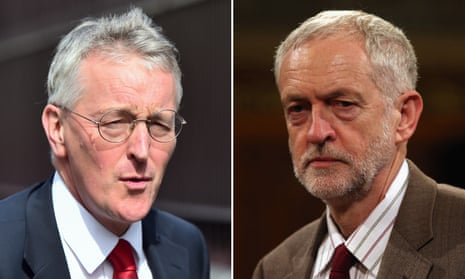Politics isn’t a joke, a theatrical show of ego and image. Or at least it shouldn’t be. It’s about the livelihoods, hopes and futures of millions of people: and, as Syria demonstrates, about whether human beings live or die. Tawdry, depressing and wholly unsurprising, then, that the Tories have delighted in using Syria’s agony to exploit Labour’s entrenched divisions. But the Tories have a knack of deriving partisan advantage from crisis, and there’s little point complaining about it. Labour – and I mean all sides of Labour – needs to get its act together, expose the disastrous consequences of Tory policies, and offer a coherent alternative that can actually inspire the majority of people.
Divisions over foreign policy are hardly new within the Labour fold, although the majority of the shadow cabinet in open revolt is undeniably novel. Back in 2003, the Tories were united in their support for the Iraq war: just 15 rebelled, while divided Labour experienced a rebellion of 139 MPs and the abstentions of many others. British participation was only delivered with the support of Iain Duncan Smith’s party. In the aftermath of a calamity even more extreme than feared by the anti-war movement, it was the parliamentary rebels who emerged vindicated. And that is why – even just from the perspective of the health of our democracy – it would be a farce if the opposition was not offering some, well, opposition to yet another military adventure.
There have been 14 years of the “war on terror”, with only record levels of terrorism and more powerful and extreme terrorist groups as its legacy; Iraq and Libya plunged into violent chaos, transformed into playgrounds for extremists; hundreds of thousands dead, many more maimed and displaced. Although Britain’s contribution to the Syria bombing will be minimal, it is difficult to be persuaded that Cameron’s “70,000 moderate rebel” figure – when Syria is overrun by plenty of extreme groups other than Isis, and other groups willing to work with them – will somehow make it the exception, the one western intervention in the Arab world that succeeds.
But, after the Syria vote is passed, Labour has to start finding issues to unite on. It frightens me that George Osborne appears to be getting away with his autumn statement. According to the Institute for Fiscal Studies, the poorest Britons face drops in income of up to 8%; middle-income workers also face a kicking. Everything has to be thrown at exposing this emptying of the pockets of millions of Britons, and fleshing out a viable alternative economic strategy that can resonate with a substantial chunk of the electorate.
On everything from the NHS to tax, education to social security, workers’ rights to social care, there is ample and little-discussed scope for common cause across the Labour party. All wings of the party need to start actively seeking out common ground if civil war is to be averted.
Everybody is going to have to give. Rather than a war of attrition, some critics of the leadership should try a more constructive approach. Owen Smith may have backed Andy Burnham for the Labour leadership, but the shadow work and pensions secretary has arguably been the most impressive media performer of the Corbyn era, particularly over the cuts to tax credits. There’s a lesson there for other Labour MPs who aren’t natural Corbyn bedfellows: focus on putting the Tories, rather than their own leadership, on the defensive. The Labour leadership never expected to win: the chaos that ensued is a product of a reluctant figurehead being catapulted into a position of authority with a deeply hostile party machine, parliamentary party and mainstream media. Hence the predictable mistakes, like not singing the national anthem when there are so many other battles to fight; mishandling the admittedly hostile media; and bungling the response to the Paris atrocities. Whether or not Ukip wins in Oldham on Thursday, it has certainly gained as a consequence.
The Labour leadership’s task is to build a coalition of middle-income and low-income Britons alike; emphasising that nothing says love for the country more than wanting to rid it of injustice; offering a vision for older people given a rapidly ageing population; appealing to self-employed people who are soon projected to overtake the number of public sector workers; and offering an economic alternative that is “for” things as much as it is “against” them. That would be a start, in any case. Easy? No. But impossible if the party is at war with itself, rather than the Tories.

